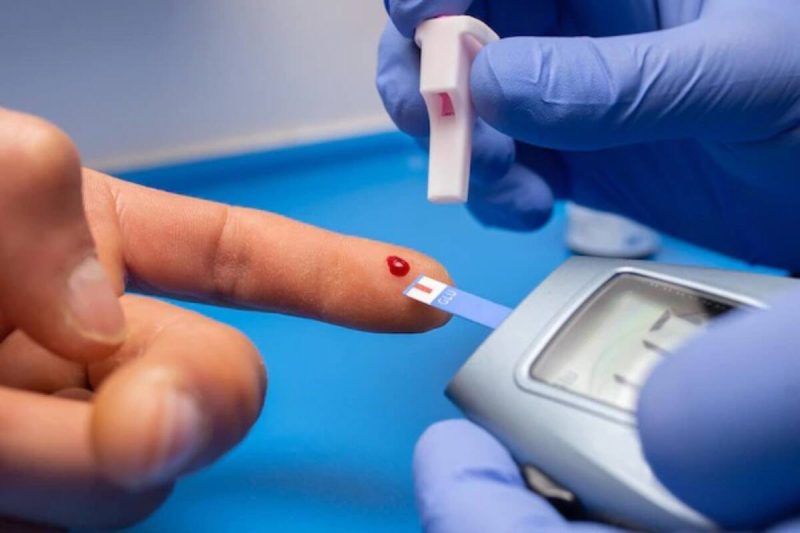Blood sugar, the fuel that keeps your body running, plays a vital role in overall health. Maintaining balanced levels is crucial for optimal functioning, but imbalances can wreak havoc on your well-being. This article delves into the importance of proper blood sugar control, exploring its impact on various aspects of health and empowering you with actionable strategies to achieve it.
The Balancing Act: Understanding Blood Sugar Regulation
Blood sugar, also known as glucose, originates from the food we consume. The digestive system breaks down carbohydrates into glucose, which then enters the bloodstream. Insulin, a hormone produced by the pancreas, acts as the key, unlocking the doors of your cells and allowing glucose to enter for energy production. When this intricate dance functions smoothly, blood sugar levels remain within a healthy range.
However, imbalances can occur. In some cases, the body’s cells become resistant to insulin’s effects, leading to a condition called insulin resistance. This can cause blood sugar levels to rise, potentially leading to prediabetes or type 2 diabetes. Conversely, the pancreas might not produce enough insulin, resulting in high blood sugar levels and potentially type 1 diabetes.
Beyond Numbers: The Ripple Effect of Blood Sugar Imbalance
Uncontrolled blood sugar can have a domino effect on your health, impacting various systems:
- Energy Levels: Chronic high blood sugar can impair your body’s ability to utilize glucose effectively, leading to fatigue and sluggishness.
- Heart Health: Elevated blood sugar levels can damage blood vessels and increase the risk of heart disease, stroke, and peripheral artery disease.
- Vision: Diabetes is a leading cause of blindness. High blood sugar can damage the delicate blood vessels in the retina, leading to vision problems.
- Nerves: Chronically high blood sugar can damage nerves throughout the body, causing neuropathy, which manifests as pain, numbness, and tingling.
- Kidney Function: Uncontrolled blood sugar can put a strain on the kidneys, potentially leading to kidney disease.
- Wound Healing: High blood sugar levels can impair circulation and the body’s natural healing response, making wounds take longer to heal and increasing the risk of infection.
Understanding these potential consequences underscores the importance of maintaining proper blood sugar control.
Unveiling the Culprits: Factors Affecting Blood Sugar
Several factors influence your blood sugar levels:
- Diet: Sugary drinks, refined carbohydrates, and processed foods can cause blood sugar spikes. Focus on a balanced diet rich in fruits, vegetables, whole grains, and lean protein for sustained energy and healthy blood sugar levels.
- Weight: Obesity and excess belly fat can contribute to insulin resistance. Maintaining a healthy weight can significantly improve blood sugar control.
- Physical Activity: Regular exercise helps your body utilize glucose more effectively, promoting healthy blood sugar levels.
- Stress: Chronic stress can elevate blood sugar levels. Practice stress-management techniques like yoga, meditation, or deep breathing exercises.
- Medications: Certain medications can affect blood sugar levels. Discuss any potential interactions with your doctor.
- Genetics: Family history plays a role in diabetes risk. However, lifestyle modifications can significantly reduce the impact of genetics.
By identifying your personal risk factors and addressing them proactively, you can take control of your blood sugar.
Charting Your Course: Strategies for Optimal Blood Sugar Control
The good news is that you have the power to influence your blood sugar levels. Here are some key strategies:
- Embrace a Balanced Diet: Choose whole, unprocessed foods with a lower glycemic index (GI). The GI measures how quickly a food raises blood sugar levels. Opt for complex carbohydrates like whole grains over refined carbohydrates like white bread, and prioritize fruits and vegetables for their fiber content, which helps regulate digestion and blood sugar absorption.
- Move Your Body: Engage in regular physical activity. Aim for at least 150 minutes of moderate-intensity exercise or 75 minutes of vigorous-intensity exercise per week. Even small bursts of activity throughout the day can be beneficial.
- Prioritize Sleep: Aim for 7-8 hours of quality sleep each night. Sleep deprivation can disrupt hormones that regulate blood sugar.
- Manage Stress: Chronic stress can elevate blood sugar levels. Explore stress-reduction techniques like yoga, meditation, or deep breathing exercises to keep stress in check.
- Stay Hydrated: Drinking plenty of water helps regulate blood sugar levels and prevents dehydration, which can worsen blood sugar control.
- Monitor Your Blood Sugar: Regular blood sugar monitoring can help you understand how different foods and activities affect your levels. Discuss with your doctor the appropriate monitoring frequency and technique.
Empowering Yourself: Partnering with Your Healthcare Team and Embracing a Sustainable Lifestyle
Maintaining proper blood sugar control is a marathon, not a sprint. Building a strong support system and adopting sustainable lifestyle changes are key to long-term success.
- Partner with Your Healthcare Team: Your doctor is a valuable resource. Schedule regular checkups to monitor your blood sugar levels, discuss your management plan, and address any concerns. A diabetes educator can provide comprehensive information about blood sugar control and self-management techniques.
- Embrace Continuous Learning: Educate yourself about blood sugar, healthy eating, and diabetes prevention.
- Celebrate Non-Scale Victories: Focus on progress, not just the numbers on the scale. Acknowledge improvements in your energy levels, sleep quality, and overall well-being. These non-scale victories are important markers of success.
- Find Your Tribe: Connect with others who understand the challenges of maintaining healthy blood sugar levels. Support groups, online communities, or even a workout buddy can provide encouragement and motivation.
- Make it a Lifestyle, Not a Diet: Sustainable change comes from adopting healthy habits you can maintain for the long haul. Focus on creating a balanced and enjoyable way of eating and living that supports your blood sugar goals.
Remember: You are not alone in this journey. With knowledge, a proactive approach, and the support of your healthcare team and loved ones, you can achieve and maintain healthy blood sugar control, paving the way for a healthier and happier you.

 Diabetology2 weeks ago
Diabetology2 weeks ago
 Diabetology2 weeks ago
Diabetology2 weeks ago
 Diabetology2 weeks ago
Diabetology2 weeks ago
 Diabetology1 week ago
Diabetology1 week ago
 Diabetology2 weeks ago
Diabetology2 weeks ago
 Diabetology6 days ago
Diabetology6 days ago
 Diabetology2 weeks ago
Diabetology2 weeks ago
 Diabetology6 days ago
Diabetology6 days ago











